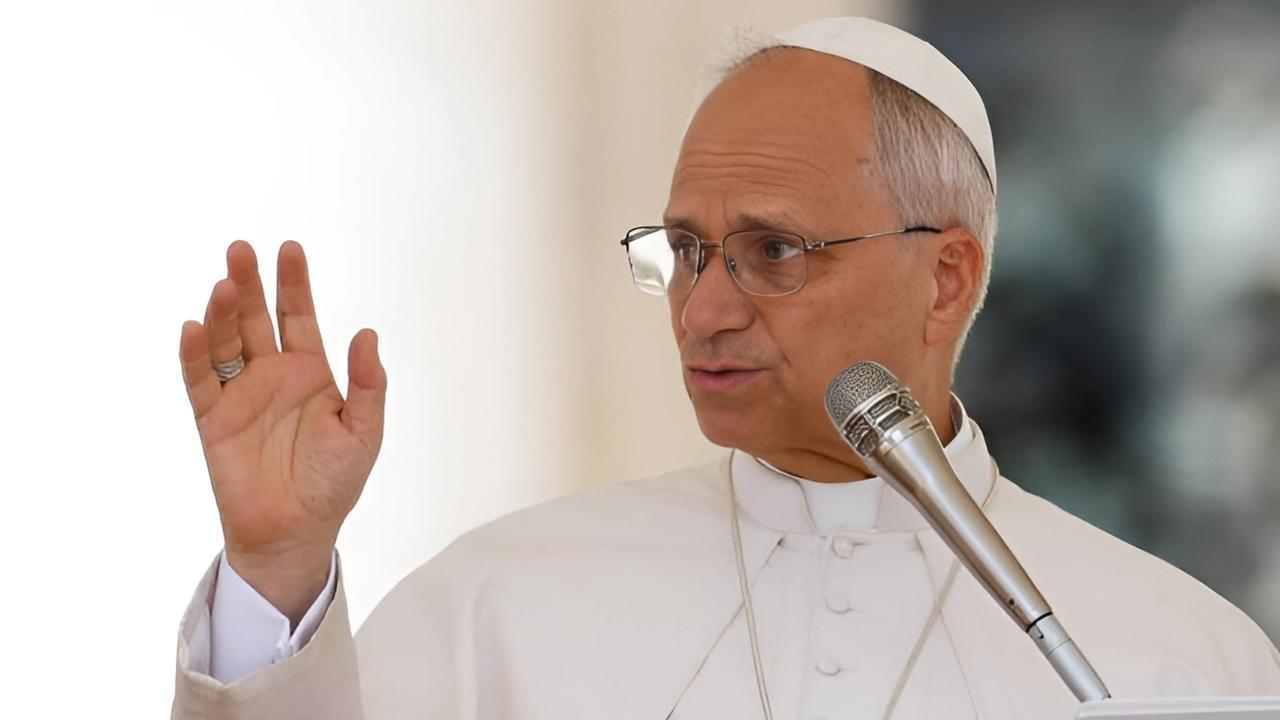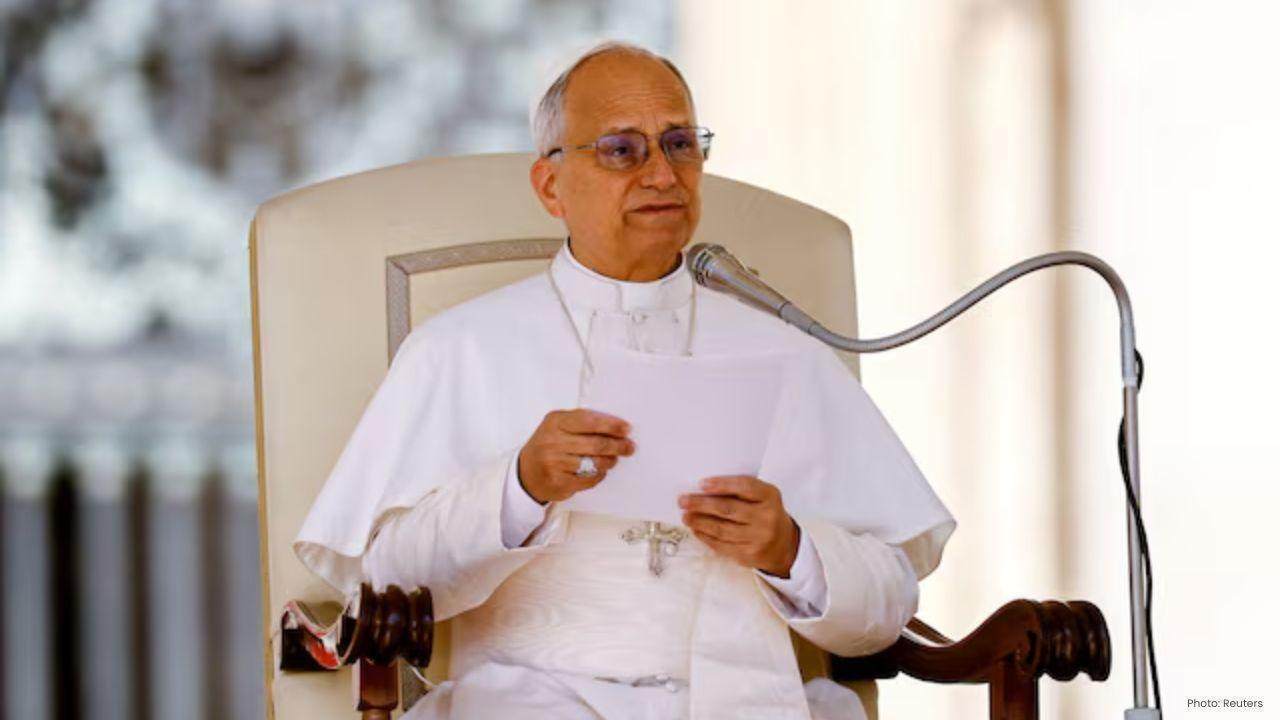
Post by : Priya
Photo:Reuters
On the 80th anniversary of the atomic bombing of Hiroshima, Pope Leo XIV made a powerful and urgent plea to the world, condemning the global reliance on nuclear deterrence as a false and dangerous security measure.
The Historical Weight of Hiroshima
August 6, 1945, changed the world forever when the United States dropped the first atomic bomb on the Japanese city of Hiroshima. That devastating attack instantly killed around 78,000 people, with total deaths by the end of the year estimated between 150,000 and 246,000 due to injuries and radiation. Three days later, Nagasaki suffered a similar fate. These two cities stand as stark reminders of nuclear horror, bearing visible and spiritual scars even after eight decades. The experiences of hibakusha—the survivors of these bombings—remain poignant testimonies urging humanity to never forget the catastrophic consequences of nuclear warfare.
Pope Leo’s Message: Rejecting Illusory Security
On this solemn anniversary, Pope Leo XIV delivered a message that reaches beyond a mere remembrance. Speaking in a weekly audience and through a formal Vatican statement addressed to Bishop Alexis Shirahama of Hiroshima, the Pope criticized the “illusory security” provided by nuclear deterrence— the doctrine that peace is maintained through the threat of mutual destruction.
He stated, “Nuclear arms offend our shared humanity and betray the dignity of creation, whose harmony we are called to safeguard.” Echoing the words of his predecessor, Pope Francis, Leo emphasized that true peace cannot be built on fear, threats, or the promise of annihilation. He urged the global community to embrace a culture of dialogue, justice, fraternity, and the common good, rather than relying on weapons capable of causing “indescribable catastrophe.”
A Shift in the Church’s Position on Nuclear Weapons
The Catholic Church’s position on nuclear weapons has evolved notably over recent decades. During the Cold War, the Church had accepted nuclear deterrence somewhat implicitly as a necessary evil in preventing total war. However, Pope Francis marked a definitive shift by outright condemning the possession and threat of use of nuclear arms. He actively supported the United Nations’ Treaty on the Prohibition of Nuclear Weapons, which came into force in 2021.
Pope Leo XIV, the first pope born in the United States—a nuclear-armed nation—builds upon this legacy by affirming the need for disarmament and labeling nuclear weapons as an “offense to humanity.” His message comes at a time of rising global tensions and conflicts, making the need for renewed peace efforts more urgent than ever.
The Global Response and the Path Forward
The anniversary was marked by an international memorial event in Hiroshima, attended by representatives from 120 nations, including the United States. Catholic bishops from Japan, South Korea, and the U.S., including Cardinals Blase Cupich and Robert McElroy, spoke out unequivocally against war and nuclear arms, condemning not only the use but also the threat of nuclear weapons.
Pope Leo’s call is a direct appeal to governments and citizens alike to reconsider what true security means. It challenges the longstanding reliance on nuclear deterrence and pushes for a shift toward comprehensive disarmament and peacebuilding efforts based on mutual respect and justice.
Pope Leo nuclear deterrence criticism










Dodgers Win Game 1 of Wild Card Series Against Reds
The Dodgers beat the Reds 10-5 in Game 1 of the Wild Card Series. Ohtani and Hernández hit two home

Tyreek Hill Suffers Major Knee Injury, Out for the Season
Miami Dolphins' star receiver Tyreek Hill tears ACL and other ligaments in win over Jets; season-end

China Raises Flag at Disputed Shoal in National Day Ceremony
On China’s National Day, its coast guard held a flag ceremony at Scarborough Shoal, asserting contro

Netanyahu Bets Big on Trump’s Gaza Plan, Faces Home Risks
Netanyahu supports Trump’s Gaza peace plan to regain global support, but his far-right partners in I

Ukraine’s frontline cities face fear but refuse to give up
In Ukraine’s frontline towns, people live with fear and danger daily, yet they show courage, refusin

US Government Shuts Down After Congress Fails to Agree
On October 1, 2025, the U.S. government began a partial shutdown due to Congress's inability to pass